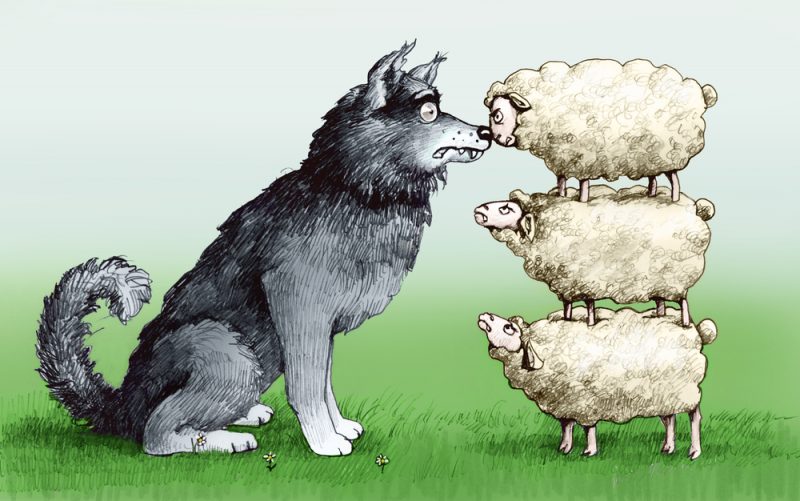Vibrant Days….
Flourishing with Sensory Processing Sensitivity
August 2018
Newsletter Navigation:
Upcoming Events – Understanding the Highly Sensitive Child and Teen
Main – How Narcissistic Parenting Affects Children
Participation – Strategies Manipulative People Use to Control You
Connect – Can You Be Fierce And Sensitive?
Watch -Tom Cruise Forces James Corden to Skydive
Ponder – Vaclav Havel
Upcoming Events
Understanding the Highly Sensitive Child and Teen
Weekend workshop with Elaine Aron, PhD, myself and Alane Freund, MS, MA, LMFT
September 28 – 30, 2018
Western, MA
(click here to register on Kripalu website)
Main
How Narcissistic Parenting Affects Children
Narcissists raise children who suffer from crippling self-doubt.
Karyl McBride, Ph.D., is a licensed marriage and family therapist and author of Will I Ever Be Good Enough? Healing the Daughters of Narcissistic Mothers.
 Why does it matter if a parent is a narcissist? How does that hurt a child? You may be asking these questions if you are a person co-parenting with a narcissistic ex; someone raised by a narcissistic parent; one who is in a relationship with a narcissist; or maybe a divorce professional working on a case that involves a narcissistic parent. Given my research and clinical experience, I want to provide some education and awareness about how this disorder hurts children.
Why does it matter if a parent is a narcissist? How does that hurt a child? You may be asking these questions if you are a person co-parenting with a narcissistic ex; someone raised by a narcissistic parent; one who is in a relationship with a narcissist; or maybe a divorce professional working on a case that involves a narcissistic parent. Given my research and clinical experience, I want to provide some education and awareness about how this disorder hurts children.
First, let me explain that narcissistic personality disorder (NPD) is misunderstood when applied to someone who is just boastful, arrogant, and all about themselves. While these traits are annoying and not fun to be around, narcissism is a deeper, more destructive disorder that has devastating effects on the people in relationships with the individual. It’s a difficult disorder to treat; many believe it is untreatable. The cornerstones of the disorder are a lack of empathy and the inability to tune into the emotional world of others.
So how does narcissistic parenting affect children?
- The child won’t feel heard or seen.
- The child’s feelings and reality will not be acknowledged.
- The child will be treated like an accessory to the parent, rather than a person.
- The child will be more valued for what they do (usually for the parent) than for who they are as a person.
- The child will not learn to identify or trust their own feelings and will grow up with crippling self-doubt.
- The child will be taught that how they look is more important than how they feel.
- The child will be fearful of being real, and will instead be taught that image is more important than authenticity.
- The child will be taught to keep secrets to protect the parent and the family.
- The child will not be encouraged to develop their own sense of self.
- The child will feel emotionally empty and not nurtured.
- The child will learn not to trust others.
- The child will feel used and manipulated.
- The child will be there for the parent, rather than the other way around, as it should be.
- The child’s emotional development will be stunted.
- The child will feel criticized and judged, rather than accepted and loved.
- The child will grow frustrated trying to seek love, approval, and attention to no avail.
- The child will grow up feeling “not good enough.”
- The child will not have a role model for healthy emotional connections.
- The child will not learn appropriate boundaries for relationships.
- The child will not learn healthy self-care, but instead will be at risk of becoming co-dependent (taking care of others to the exclusion of taking care of self).
- The child will have difficulty with the necessary individuation from the parent as he or she grows older.
- The child will be taught to seek external validation versus internal validation.
- The child will get a mixed and crazy-making message of “do well to make me proud as an extension of the parent, but don’t do too well and outshine me.”
- The child, if outshining the parent, may experience jealousy from the parent.
- The child is not taught to give credit to self when deserved.
- The child will ultimately suffer from some level of post-traumatic stress disorder, depression, and/or anxiety in adulthood.
- The child will grow up believing he or she is unworthy and unlovable, because if my parent can’t love me, who will?
- The child is often shamed and humiliated by a narcissistic parent and will grow up with poor self-esteem.
- The child often will become either a high achiever or a self-saboteur, or both.
- The child will need trauma recovery and will have to re-parent themselves in adulthood.
Being raised by a narcissistic parent is emotionally and psychologically abusive and causes debilitating, long-lasting effects to children. It is often missed by professionals, because narcissists can be charming in their presentation, displaying an image of how they wish to be seen. Behind closed doors, the children feel the suffocation of self and struggle with loneliness and pain. The narcissist is not accountable for their own mistakes or behavior, so the child believes they are to blame and that they flunked childhood. Having worked as a mental health provider with thousands of children, as well as the adult children of narcissistic parents, I see the above symptoms again and again. The lifestyles differ, and the stories differ, but they all wave the same emotional banners. It’s quite a list. It takes serious recovery work to get better and feel better.
If you are the other parent, or part of the extended family, and are trying to ward off the effects of a narcissistic parent, you will have double duty as the responsible one. The best approach is to parent with empathy — the antithesis of narcissism. If you are a divorce professional working with a case that involves a narcissist, help the kids by first really understanding the dynamics of this disorder. Don’t minimize it. Make sure the children are in therapy and are learning assertiveness skills to use with a parent who does not emotionally tune into them. Put the kids first.
Note: Narcissism is a spectrum disorder, so think of it as a continuum ranging from low-level traits that we all have to some degree to a full-blown personality disorder. The higher the level of traits, the more damage gets done to children.
Participation
Strategies Manipulative People Use to Control You

Like other HSPs, I have often given too much to the wrong people a time too many. Giving the benefit of the doubt and then regretting has been a pattern with me for years. But in the last several years, I have consciously worked through many faulty beliefs about my responsibility and drawn more sketched-out boundaries around my life.
Manipulative People Disrespect Nice People
But recently, all that I have been learning was put to test, as it often is. The universe gave me a test. I encountered someone who is definitely a bully and also has narcissistic qualities. While I was interacting with them, I went back and forth in my mind wondering whether they were a full-blown narcissist or not. I tried to rationalize when they stepped on my toes. This person physically got into my personal space and tried to intimidate me by speaking loudly. Often, it felt like they thought that they were the employer and I was the servant. They were definitely not “nice” and as they made one power play after another, I thought of how naive I had always been.
Like many other HSPs, I have often had beliefs that said that if you were just loving enough, you could bring out the good in the other person. But as time has taught me, depending on who you are dealing with, being accommodating or “nice” can be seen as weakness. There are people out there who don’t operate with the same paradigm that many HSPs do. This time though, with years of experience and falling flat on my face with bullies and potentially narcissistic people, I was able to be discerning and set my boundaries without getting into any sort of drama.
But the process was hard at times and more than once, I felt confused. Was this person really that bad? Was I being too harsh? Some of the ways in which they acted, bullying and trying to control me at first and then switching to being nice left me feeling a little fogged up. As I scrambled to find answers, once again turning to the internet, searching about narcissistic behavior, once again feeling like “I am not a psychotherapist. How can I really know whether this person has a real problem or not?,” in one article, I came upon an unusual suggestion from someone who recommended reading Gavin De Becker’s book The Gift of Fear to figure out tactics that manipulative people use to con you.
Manipulative Tactics
I had already come across De Becker years before and even had his book! So, I leafed through my copy, and within the very serious topics that De Becker covered (he is the CEO of a firm that predicts and prevents violence against individuals), I found insights into tactics that people who are trying to coerce or manipulate you often use.
It helped quite a bit with dealing with my bully and it might help you as well.
- Forced Teaming: Once the bully I was dealing with realized that their intimidating tactics, such as raising their voice or blaming me weren’t working, they seemed to change their approach. They used statements with “We” implying that we were alike, kind of like we were on the same team. But then, pretty soon afterward, they would switch back again to their old intimidating tactics. It was on and off, on and off more than once till I realized that this was a “strategy.” When the more bullying strategy didn’t work, they just tried something else to get me to think we were on the same team. De Becker talks about how this is a very sophisticated manipulation tactic. It’s used by con men and con women to establish premature trust. If you suspect that someone is a narcissist or that they are trying to manipulate you, then listen to what De Becker says: “The detectable experience of forced teaming is the projection of a shared purpose or experience where none exists: ‘Both of us;” “we’re some team;” “how are we going to handle this?;” “now we’ve done it,” etc. In the book, De Becker uses examples of women who have been subjected to violent crimes and talks about how it’s important to see that forced teaming is not about partnership or coincidence – it’s about establishing rapport. Depending on who you are dealing with, this rapport building can become dangerous such as if you don’t know the person or if you feel fogged up, like I did, when someone self-serving tries to establish this forced closeness.
- Charm and Niceness: De Becker talks about how charm is another overrated ability. He talks about how charm is not an inherent feature of one’s personality. It’s something that you can turn on and turn off. “Think of charm as a verb, not a trait. If you consciously tell yourself: “This person is trying to charm me” instead of “This person is charming,” you’ll be able to see around it.” Most often, when you see what’s behind charm, it won’t be sinister, but other times you’ll be glad you looked.” It’s so interesting that De Becker talks about niceness as a strategy. It’s interesting that he says: “People seeking to control others almost always present the image of a nice person in the beginning.” Of course, most people don’t have any wrong intent. But for us as HSPs and if we are someone who gives people a lot of benefit of the doubt, it’s really important to check this. For me, understanding that my “garden-variety narcissist” (if there can be such a thing, but they were not hidden and not as sophisticated as the con men De Becker talks about.) had switched to niceness as a way to gain back control was very helpful. But what I had to constantly remind myself of was that they started off by bullying me, even though they knew I had been hurt by something they did. This person didn’t make any effort to talk about this issue. They didn’t talk about any real thing that I am interested in because they, themselves, weren’t interested in those things. Instead, they made some token “nice” remarks and when I didn’t warm up after that, didn’t really self-reflect but instead switched back to intimidation and control as a strategy.
- Loan Sharking: In the book, De Becker talks about how manipulative people want to sometimes help you because that would place you in their debt and the fact that you owe a person something will make it hard for you to ask them to leave you alone. Let’s take an example. Let’s say your mother is a narcissist. She creates a lot of drama and tension and seems to thrive on it. Maybe, you start getting this and pull back. If the crazy-making stops getting a response from you, then maybe she tries another tactic: She offers to help. If you accept this help, after this, how can you then not be okay with all those other ways in which she tries to manipulate or control you? This dynamic seems to play out in many situations, in different relationships. It can be hard to see. When the person I suspected was a narcissist did this, I kind of got it this time. This was because I knew the help wasn’t unconditional. It came with strings attached. It was a way to find their way back. But for once, I remembered the context, the fact that my hurt feelings hadn’t been acknowledged at all and that our interactions had been initiated in a way that had felt very gamey to me. Not everyone does things out of the goodness of their heart. It’s important now for me to let go of this child’s thinking. The world has all sorts of people in it and not everyone operates in the same way.
After I had physically removed myself from this person’s presence, although I had both kept my power and also kept things polite at the surface level, I felt a gnawing depression. I felt that the deep hurt that I had felt hadn’t been addressed. It hadn’t been acknowledged. I felt as if my heart was congested as if I couldn’t breathe. I wished that they were different. I again asked myself whether they were really a narcissist or not. There is no way to test, no way to be 100 percent sure. But in trying to rationalize, I think I forgot the Context – that someone knew I was angry with them but then did not address that issue and in fact, was callous about it. They were definitely not nice. They knew I don’t like confrontation. So, they thought of that as a weakness and tried to bully me. When that didn’t work, they changed tactics, but on a superficial level. At every stage, they tried to get the upper hand. They very much operated on the paradigm of control, feeling like if they were not one-up on me in some way, they were one down.
The Pain Of Being Dehumanized
How could such a person acknowledge my feelings? Wouldn’t they feel that they were one-down as if they had a lost battle? Our interactions weren’t about nurturing the relationship, but about being manipulative to gain the upper hand. How could I then ever feel comfortable with them? How could I trust them? I know that like many other HSPs, I don’t like judging people prematurely and I want to almost talk myself out of the real discomfort and that feeling of constantly patrolling my boundaries that I felt with this person. But if someone drains me or I feel ill-used by them, then isn’t it my responsibility first to myself now? Haven’t I gone down this wrong path enough times, not heeding warning signs and red flags? I don’t think I need to figure out whether this was a narcissist or not or whether they only have narcissistic traits. What I do know is they didn’t care about my feelings. What I do know is that they play power games where they are okay with pushing someone down. Why would I then want to try to figure them out?
I think I might know everything I need to know about them. Maybe, as someone wise told me, I need to freeze my opinion of this person, instead of getting taken in and fogged up by the switch and bait. Maybe, I need to make my own safety a much higher priority.
What do you think? How have you learned to handle narcissistic people in your life?
Connect
Can You Be Fierce And Sensitive?

As a sensitive person do you ever feel fierce inside and think that those feelings are inconsistent with being sensitive?
Do those fierce feelings conflict with the empathetic part of you?
What Does it Mean To Be Fierce?
Fierceness is very natural. It occurs in nature all of the time. All you have to do is watch animals and they are fierce as naturally as they are relaxed. They act fiercely as easily as they eat and sleep.
In contemporary society, we do not see a lot of fierceness. We see aggression, we may see passion, but we do not talk about fierceness very much. So why all the confusion?
Aggression Vs. Fierceness
So often I hear people talk about fierceness and aggression as if they are the same thing. That does not resonate with me. I think they are different.
To me, aggressive and fierce are not the same thing because they come from different places. Aggression comes from ideas about life. It comes from the shoulds, coulds, woulds, oughts and other ways of defining life that really have nothing to do with life. Aggression comes from our desire for security – inner or outer. It results in nasty inner dialogues and mind games that drive us crazy. People sometimes act on the basis that the ideas are valid and therefore become aggressive in defending these ideas. All sorts of problems then ensue – some of them very expensive involving military hardware.
Aggression develops when we create a mental or cultural structure and then try to defend it. I think that inevitably where there is aggression there is a structure of some sort lurking whether it is a social role, identity structure, the dialogue of historical narrative, caste systems and the like.
As a result, aggression comes from the head.
What Is Fierceness?
What is fierceness and how is it different?
Fierce comes from the heart. Fierceness is the protective love of a mother bear from her cub. It shows up in whatever love we feel for our world and the creatures in it. It is not a small distinction – the difference between aggression and fierceness. To be fierce is important because our fierce heart-based love is the basis of good work, charity to one another, making good choices and the search for wisdom. It is the part of us that seeks to be a part of the good in the world and add to it. It is also the source of our passion.
Aggression is protective of the status quo. It has a preconceived agenda. It will seek order over health and wholeness. Aggression is at odds with the heart’s needs.
Fierce And Sensitive
To be both fierce and sensitive is not as incompatible as they may sound. Many sensitive people, myself included, often have fierce feelings. They may seem incompatible with our sensitive and empathetic natures but I don’t think they are. I think, however, that they can be hard to handle because we feel so many things so deeply.
Personally, I think that fierceness comes from a gentle place so it is very compatible with being sensitive. Even natural. I think it is worth embracing our fierceness. It is a sign that we are alive and awake, as painful as that may be sometimes. Natural fierceness arises from being present not from being threatened; being present is the only way to access our natural loving natures.
One of the ways you can tell the difference between fierceness and aggression is to ask if the feeling coming from defending a structure or affirming life. Then you know what is really going on. Fierceness in serving life tells us when structures need to change when they have become destructive or outlived their usefulness. We are right now seeing a rise in the fierceness of the global population in response to real threats to environmental sustainability. It is fierceness to embrace the need for greater sustainability; it is aggression to defend the status quo.
So embrace your fierceness mindfully. It is a life-supporting force that is worth cherishing and very compatible with being sensitive.
Watch
Laughter is a new pillar of this newsletter
Ponder
“Vision is not enough, it must be combined with venture. It is not enough to stare up the steps, we must step up the stairs.”
– Vaclav Havel
